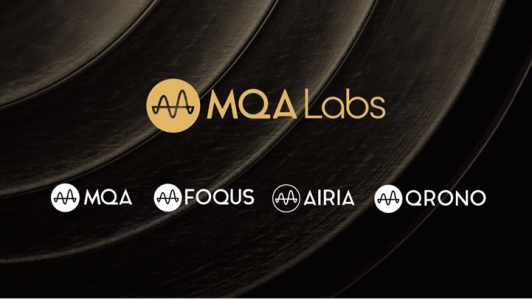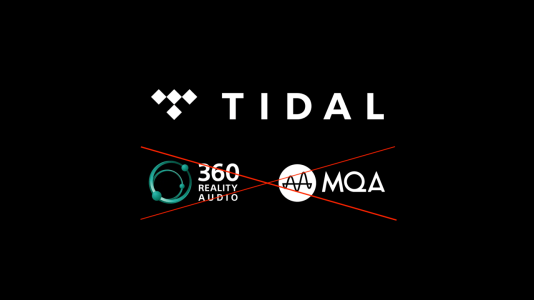
Le Master Quality Authenticated (MQA) est un codec audio, initialement élaboré par Meridian Audio, utilisant une compression à perte (lossy) et non sans perte (lossless) pour diffuser des fichiers audio Hi-res originellement en 24 bits/96 kHz ou 24 bits/192 khz. Ce format qui a été utilisé notamment sur le service de streaming Tidal a fait l'objet de nombreux débats et critiques audiophiles quant à sa réelle efficacité. La société qui le supportait a fait faillite, on le croyait mort et enterré, mais le groupe Lendbrook Media, qui réunit les marques NAD, Bluesound et PSB Speakers, l'a racheté. Celui-ci vient d'annoncer ses plans pour faire revivre le format MQA. Il va devenir une suite de différents traitements audio : MQA FOCUS pour la conversion analogique vers numérique, MQA AIRIA pour la compression du fichier et MQA QRONO pour le décodage et le traitement au sein des appareils de lecture.
Ci-dessous l'annonce officielle en anglais :
JUNE 5, 2024, TORONTO, ONTARIO CANADA – Lenbrook Media Group (LMG), specialists in high resolution audio, has announced a suite of products from the newly formed MQA Labs that bring audio processing enhancements across the music supply chain. AIRIA by MQA Labs™ (also known by its technical name, SCL6) delivers high resolution audio while seamlessly scaling from full lossless to very lossy rates. FOQUS by MQA Labs™ represents an innovative approach for analogue to digital conversion. QRONO by MQA Labs™ brings a variety of audio processing enhancements within playback devices. These technologies are expected to debut in a variety of licensee products before the end of calendar 2025.
Gordon Simmonds, CEO of The Lenbrook Group, LMG’s parent corporation, reflected on the initial decision to acquire the assets of MQA. “These developments confirm our instincts around this team and the value of the IP. While the choice and accessibility of MQA content remains a priority for us, this was never about a single codec,” he says.
The creation of MQA Labs and its newest product families reflect Lenbrook’s passion to improve the whole audio chain and bring the highest quality recording, distribution and playback technologies to benefit the entire specialty audio industry and its fans.
“The digitization of an analogue signal introduces a range of imperfections to the resulting audio file. One of the most common and critical is something often referred to as time smearing - when the resolution of two sounds is reduced because their timing is incorrectly reproduced within the digital file,” explains Greg Stidsen, Chief Technology Officer at Lenbrook. “MQA Labs’ team are experts in time-domain audio improvements, having invented many of the techniques to avoid or eliminate such audio defects.”
Two of the new product families will address the issue head on: FOQUS, which tackles the analogue to digital processes, and QRONO, which will address converting digital back to analogue.
The third product family is among the most anticipated of LMG’s future products. Previously known by its technical name, SCL6, it is a new codec seamlessly ensuring the best resolution possible regardless of bandwidth availability. Now named AIRIA by MQA Labs, the codec was developed to transform audio across wireless connections. Most recently, LMG successfully completed pilots for use as a distribution codec - perfect for streaming services. As a transmission codec, it shines as a high-resolution codec with dramatic operational savings and reliability.
Early response from the industry around these new products has been positive.
“We are inspired by the reactions of our partners who are incorporating these technologies into their products,” explains Mike Jbara, Vice President & GM of LMG. “This is a milestone moment for us. We are committed to receiving and applying feedback from the market in how we apply our technologies and ensuring they are more flexible and accessible throughout the music supply chain.”


